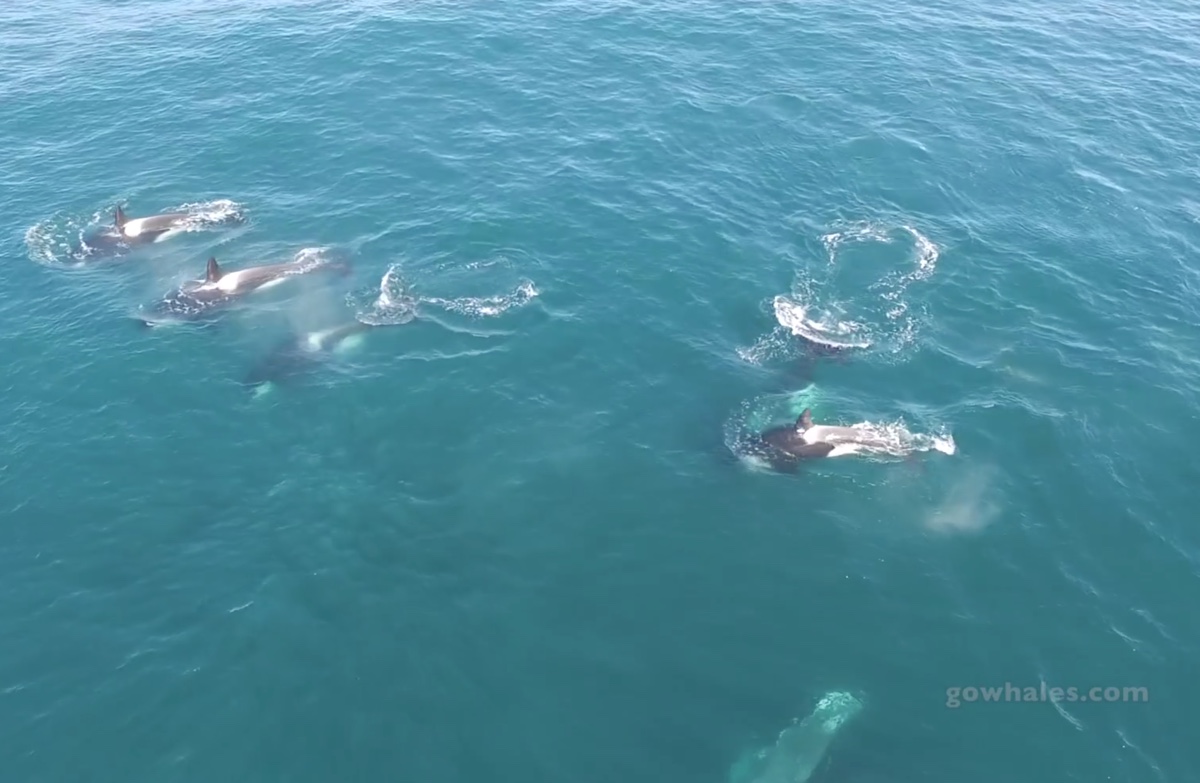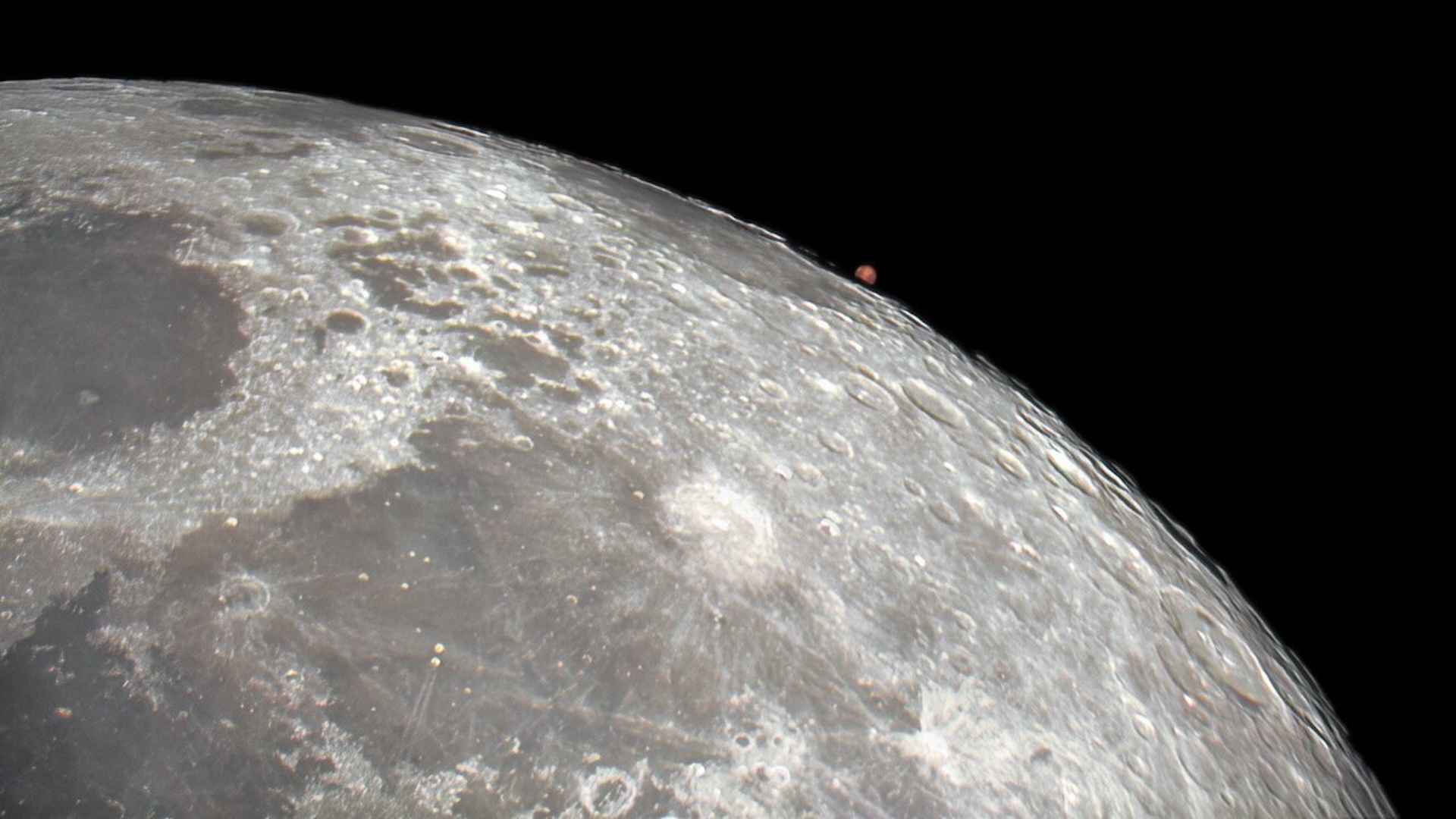At this time of year, gray whales and their calves are making their way up the California coast as part of their annual migration from Mexico to Alaska. A bounty of young, harmless grey whale calves is an irresistible lure for the top ocean-predators. [Watch Video of the Humpbacks Trying to Save the Gray Whale Calves]
Killer whales (or orcas) can always be found in the area off Monterey, but this year has been particularly grim for the killer whales' prey. One orca gang, led by an adult female named Emma, has been camped out in Monterey Bay for the past few weeks, said marine biologist Nancy Black, who works with Monterey Bay Whale Watch, a whale-watching outfit. In the last 12 days, the deadly orcas have killed seven gray whale calves, she said.
Meanwhile, humpbacks have been in the area to feed on anchovies. They do not appear to be fans of the orcas' deadly onslaught. Whenever they see an orca attack a gray whale calf, they rush in to stop it.

"Humpbacks have been charging in, probably because killer whales are the natural predators of the humpbacks also," Black said. "They are charging in and trumpeting and trying to get in the way, using their tail flukes to try to slash them and push them away," and being as boisterous and annoying as possible in the area, she said.
Savior instinct
It's not clear why humpbacks are trying to save the day, but it may just be a byproduct of their natural "hatred" for killer whales. Killer whales also prey upon humpback calves (though not adult humpbacks), Black said. Around this time of year, though, humpbacks don't have their calves with them, so stepping in isn't a matter of self-defense.
"They're probably instinctually just trying to push away their predator from the area, whether it's a different species of animal doesn't matter, they just want to get them away," Black told Live Science.
This isn't the first time scientists have documented this phenomenon. A study in 2016 found that humpbacks band together to fight off killer whale attacks, no matter the species involved.
Sign up for the Live Science daily newsletter now
Get the world’s most fascinating discoveries delivered straight to your inbox.
Humpbacks are probably lured to the area by killer whale vocalizations, Black said.
So far, Black hasn't seen a humpback whale successfully stop a gray whale kill, but they have made feeding on a gray whale calf carcass more stressful, Black said.
However, humpbacks are often successful at saving sea lions or other small mammals from the killer whales' jaws.
Humpbacks "have prevented killer whales from catching seals and sea lions," Black said. "They push the sea lion out of the way and save it."
It's not clear exactly why the humpbacks play the hero, as no other creature on Earth seems willing to stand up to killer whales — and certainly not for a different species.
"Other whales like blue whales, when they hear killer whales, they flee," Black said. " Blue whales take off in the opposite direction." Blue whales are the largest animals on Earth.
Originally published on Live Science.

Tia is the managing editor and was previously a senior writer for Live Science. Her work has appeared in Scientific American, Wired.com and other outlets. She holds a master's degree in bioengineering from the University of Washington, a graduate certificate in science writing from UC Santa Cruz and a bachelor's degree in mechanical engineering from the University of Texas at Austin. Tia was part of a team at the Milwaukee Journal Sentinel that published the Empty Cradles series on preterm births, which won multiple awards, including the 2012 Casey Medal for Meritorious Journalism.










